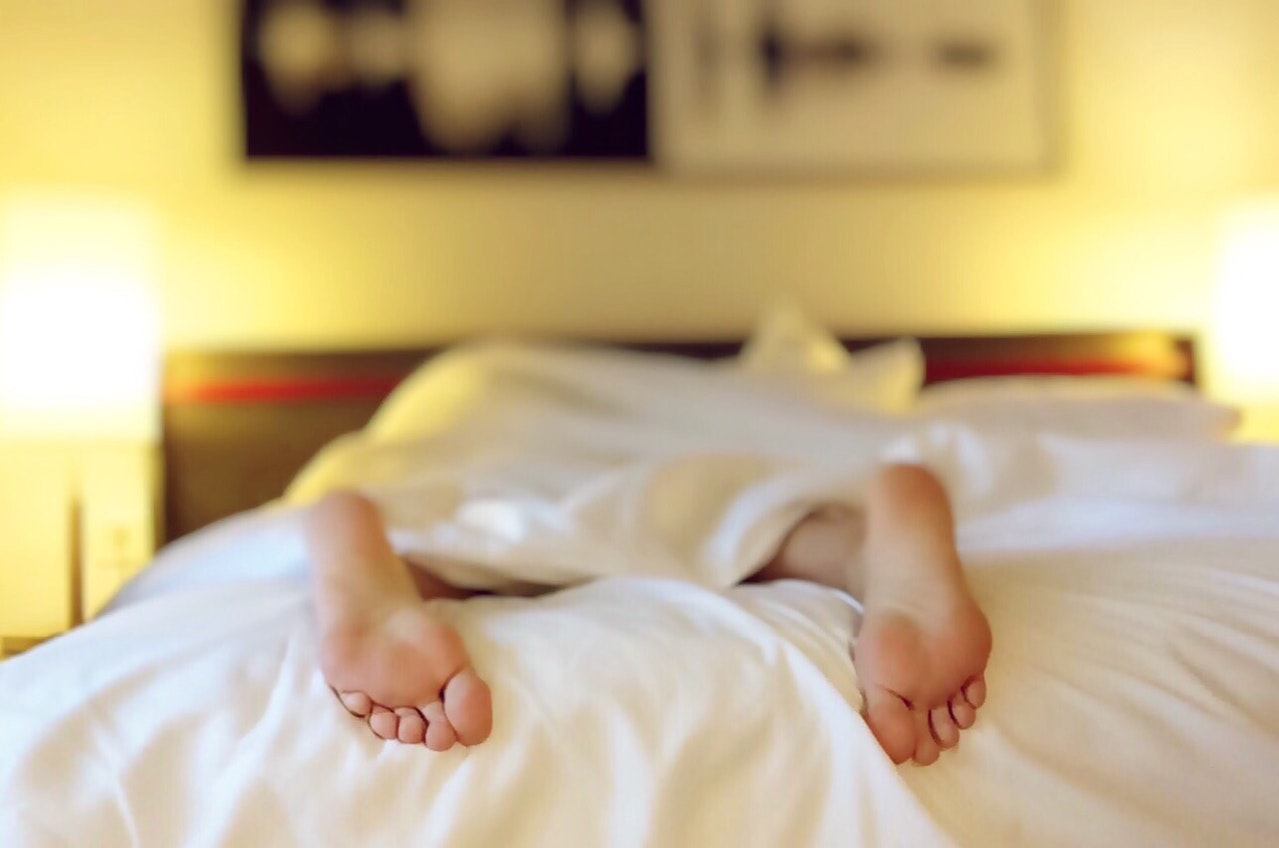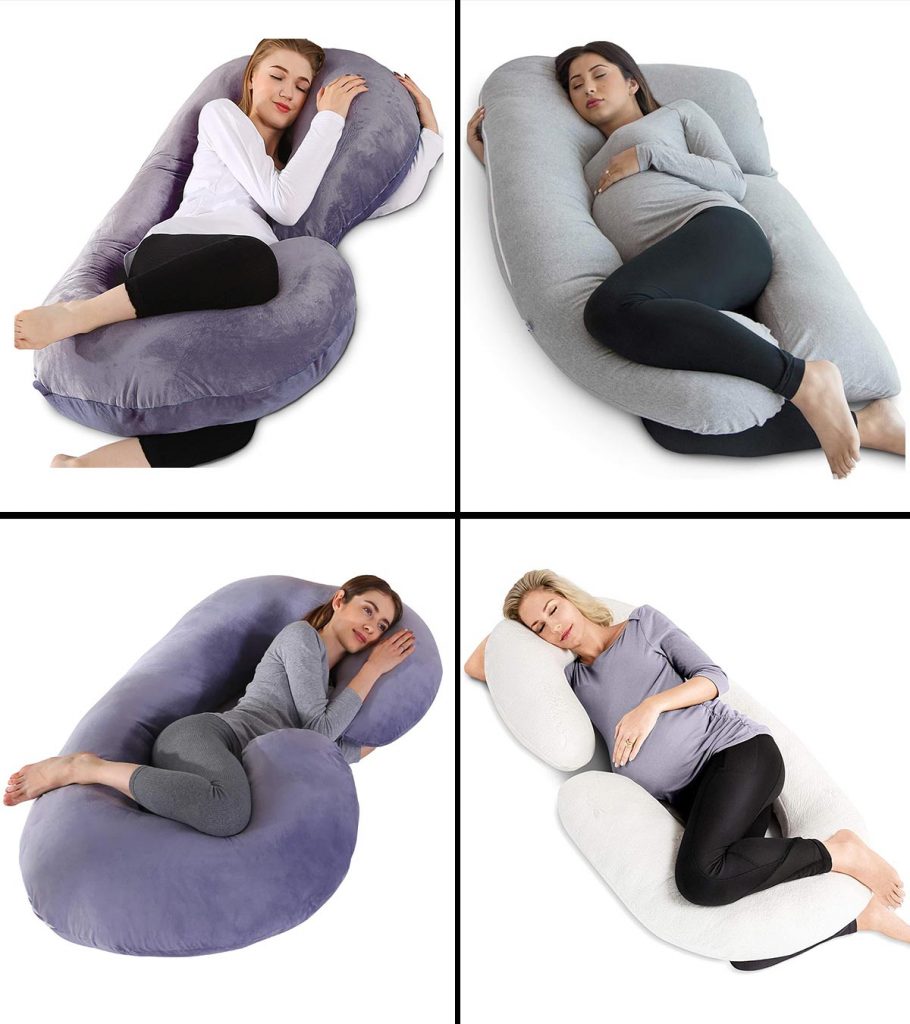If you’re among the 16 percent of Americans who are stomach sleepers, you might be waking up with aches, pains, or numbness in your neck, arms, or back.
Sleeping on your stomach may feel comfortable when you first lay down, but it disrupts your spine’s natural, neutral position.
That means a painful back, neck, or shoulders come morning – or even later in the night. Over time, this leads to a lack of sleep, lowered productivity, and poor focus.
If you wake up often due to painful sleep disruptions caused by sleeping on your stomach, the benefits of switching up your sleep position are seemingly endless.
A Pain in The Neck…and Back!
Sleeping on your stomach may benefit your overnight airway health. Stomach sleeping lowers your risk for snoring or sleep apnea when compared to sleeping on your back.
However, this one potential benefit isn’t worth the many drawbacks of this sleeping position.
When you sleep on your stomach, your torso sinks into the mattress. As a result, your back arches downward.
This position stretches the spine out of alignment, leading to added stress and strain.

Moreover, sleeping on your stomach forces you to turn your head to the side in order to breathe, further misaligning the neck.
Neck and shoulder pain may follow, increasing the risk of a herniated disk.
Sleeping on your stomach provides no benefits for your spine – and it also doesn’t do any favors for your skin, either.
Worsened Wrinkles
We spend about a third of our lives sleeping. Therefore, whatever position our faces are in at night may lead to lines and wrinkles within the skin.
Sleeping face down pushes your face directly into the pillow. This causes more friction on the skin than laying on your back or side.
In fact, researchers have found that stomach sleeping is proven to cause wrinkle-forming compression on the skin.
Moreover, you may end up with acne and skin irritation.

Dirt, bacteria, and makeup collect on our pillowcases. When we sleep on our stomachs, our faces make direct contact with this bacteria all night long.
Breakouts and irritation follow. While washing your pillowcase regularly and cleansing your face can help, swapping your sleeping position for a less compressed one prevents both acne and wrinkles in one fell swoop.
If you’re expecting, stomach sleeping is a huge no-no. Here’s why.
It’s Harmful For Moms-To-Be
While sleeping on your stomach becomes more and more physically uncomfortable as pregnancy progresses, it’s also dangerous.
Sleeping on your stomach offers no benefit to your back or neck, as we’ve already learned. The extra weight of your growing belly worsens the pull on your spine – and pregnant women don’t need any added back pain.
Lying on your back isn’t recommended, either, as it causes pressure on the inferior vena cava: a large vein that carries deoxygenated blood from the lower and middle part of the body to the heart.
A study from 2012 suggests that sleeping on the left side is best for both moms-to-be and babies, as it increases blood flow and oxygen more than other positions.
Therefore, side sleeping is best if you’re expecting. A pregnancy pillow can help to support your body in this position by keeping your spine and joints aligned.
Side sleeping may be the superior sleeping position for all adults – pregnant or not.
Side Sleeping: The Superior Sleep Position
As we’ve learned, sleeping on your stomach only benefits your airway health when compared to sleeping on your back.
Stomach sleeping seems to only offer downsides beyond that, like back pain, worsened wrinkles, and more.
Sleeping on your back causes airway tissues to fall backward and collapse on themselves. These tissues block the airway and vibrate together, producing the sound of snoring.
Side sleeping provides a happy medium between misaligned stomach sleeping and snore-inducing back sleeping.
Moreover, it’s the most preferred sleeping position. Around 60 percent of adults say they prefer side sleeping to any other position.
Side sleeping protects the spine while helping to reduce pressure on the hips and knees. Some research even suggests it’s the optimal position for improving digestion.
@somnifix Should you sleep on your side for better digestion? Science says yes, according to #jamesnestor 🥱💤 #digestivehealth #guthealth #jamesnestorbreath #airwayhealth #sleephack #biohack #wellness ♬ Trap Money so Big (Remix) - Iqbal12
It also lowers the risk of heartburn and snoring by helping to protect the airway from collapsing.
Sleeping on your side naturally opens up your airways, helping you to breathe with ease. Someresearchers believe that sleeping on the left side is more effective for snoring prevention than the right.
In fact, sleeping on the left side is the recommended sleeping position for sleep apnea sufferers.
Some people may find that adding a second pillow between the knees helps to further keep the spine aligned for additional comfort.
While side sleeping is optimal for preventing back pain and snoring, snoring is still possible if you’re a chronic mouth breather.
A Closed Mouth = The Ultimate Sleeping Position
The position of your tongue and mouth overnight influences your sleep quality just as much as your sleeping position.
If your mouth is open, you’re likely breathing in and out of it. This leads to unfiltered air that causes poor oxygenation while influencing airway collapse.
In short, mouth breathing is a one-way ticket to snoring that fragments sleep quality and causes sleep deprivation.
Nasal breathing, however, encourages proper oxygenation while producing nasal nitric oxide, a vasodilator that shifts our nervous system from “fight or flight” to “rest and digest.”
When we nasal breathe during sleep, the chances of open-mouth snoring dwindle. Improved sleep quality follows.
You’re probably asking, “How do I keep my mouth closed if I’m asleep?”
Mouth tape seals the lips shut, preventing overnight mouth breathing altogether. Before you reach for any old tape, you should know that chemicals within the adhesives of most tapes lead to rashes and irritation.
SomniFix, however, was created with all skin types in mind. Our comfortable gel-like adhesive provides a seal so comfortable, you’ll forget you’re wearing mouth tape at all.
Our patented central breathing vent gives you peace of mind as you adjust to the sensation of overnight mouth taping.
While you switch up your sleeping position from stomach sleeping to side sleeping, switch up the position of your mouth!
Keep it closed with SomniFix to experience all that nasal breathing has to offer tonight.






